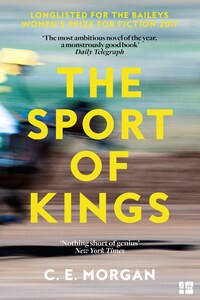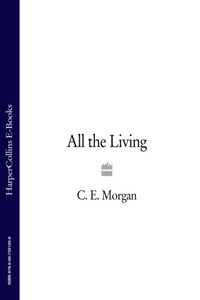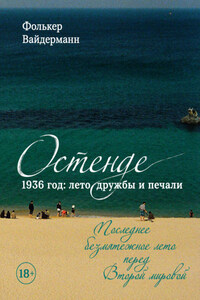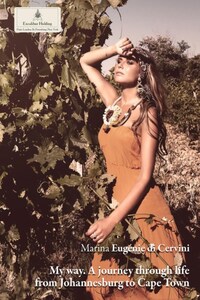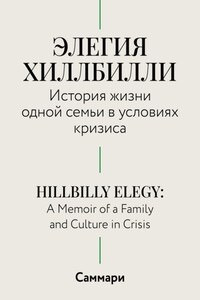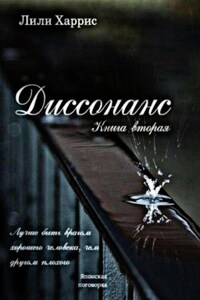4th Estate
An imprint of HarperCollinsPublishers
1 London Bridge Street
London SE1 9GF
www.4thestate.co.uk
This eBook first published in Great Britain by Fourth Estate in 2016
First published in the United States in 2016 by Farrar, Straus and Giroux
Copyright © 2016 by C. E. Morgan
Map copyright © 2016 by Jeffrey L. Ward
Cover photograph © Shutterstock
Design by Anna Morrison
C. E. Morgan asserts the moral right to be identified as the author of this work
A catalogue record for this book is available from the British Library
Grateful acknowledgement is made for permission to reprint the following material:
‘How to Identify a Thoroughbred’ from The Jockey Club Registry, reprinted with permission of The Jockey Club. Copyright © 2016 The Jockey Club.
Secretariat’s measurements from the Daily Racing Form copyright 2016 by Daily Racing Form, LLC. Reprinted by permission of the copyright owner.
All rights reserved under International and Pan-American Copyright Conventions. By payment of the required fees, you have been granted the non-exclusive, non-transferable right to access and read the text of this e-book on-screen. No part of this text may be reproduced, transmitted, down-loaded, decompiled, reverse engineered, or stored in or introduced into any information storage and retrieval system, in any form or by any means, whether electronic or mechanical, now known or hereinafter invented, without the express written permission of HarperCollins
Source ISBN: 9780007313266
Ebook Edition © May 2017 ISBN: 9780007313280
Version: 2017-03-31
Your spirit will spread little by little through the whole great body of empire, joining all things in the shape of your likeness.
—SENECA
Henry Forge, Henry Forge!”
How far away from your father can you run? The boy disappeared into the corn, the green blades whisking and whispering as he raced down each canopied lane. The stalks snagged him once, twice, and he cried out like a wounded bird, grasping his elbow, but he didn’t fall. Once, he’d seen a boy break his arm in the schoolyard; there had been a bough-like crack of the thick bone snapping and when the boy stood, his arm hung askew with the bone protruding like a split ash kitchen spoon—
“Henry Forge, Henry Forge!”
Number one, I am Henry Forge.
His father’s voice echoed across the warped table of the earth, domine deus omnipotens, dictator perpetuo, vivat rex, Amen! The thick husks strained their ears toward the sound, but the boy was tearing across the tillable soil, soil that had raised corn for generations and once upon a time cattle with their stupid grazing and their manure stench. He was sick to death of cattle and he was only nine.
Number two, curro, currere, cucurri, cursus. I am forever running.
Silly child, he couldn’t know that the plants announced him, the flaxen roof of the corn dancing and shaking as he passed, then settling back to coy stillness, or that his father was not in pursuit, but stood watching this foolish passage from the porch. On the second story, a window whined and a blonde voiceless head protruded with a pale, strangely transmissive hand making gestures for John Henry, John Henry. It pounded the sill twice. But the man just remained where he was, eyes to his son’s headlong retreat.
The young boy was slowing now in the counterfeit safety of distance. He boxed the corn, some daring to feint and return, some breaking at the stalk. He didn’t care; his mind refused to flow on to some future time when redress might be expected or demanded. There was fun in the flight, fun borrowed against a future that seemed impossible now. He had nearly forgotten the bull.
Number three, Gentlemen of the jury, I am not guilty!
The corn spat him out. His face scraped by the gauntlet, he clutched handfuls of husk and stood hauling air with his hair startled away from his forehead. Here the old land is the old language: The remnants of the county fall away in declining slopes and swales from their property line. The neighbor’s tobacco plants extend as far as the boy can see, so that impossibly varying shades of green seem to comprise the known world, the undulating earth an expanse of green sea dotted only by black-ship tobacco barns, a green so penetrating, it promises a cool, fertile core a mile beneath his feet. In the distance, the fields incline again, slowly rippling upward, a grassed blanket shaken to an uncultivated sky. A line of trees traces the swells on that distant side, forming a dark fence between two farms. The farmhouse roofs are black as ink with their fronts obscured by evergreens, so the world is black and green and black and green without interruption, just filibustering earth. The boy knows the far side of that distant horizon is more of the bright billowing same, just as he knows they had once owned all of this land and more when they came through the Gap and staked a claim, and if they were not the first family, they were close. They were Kentuckians first and Virginians second and Christians third and the whole thing was sterling, his father said. The whole goddamn enterprise.
